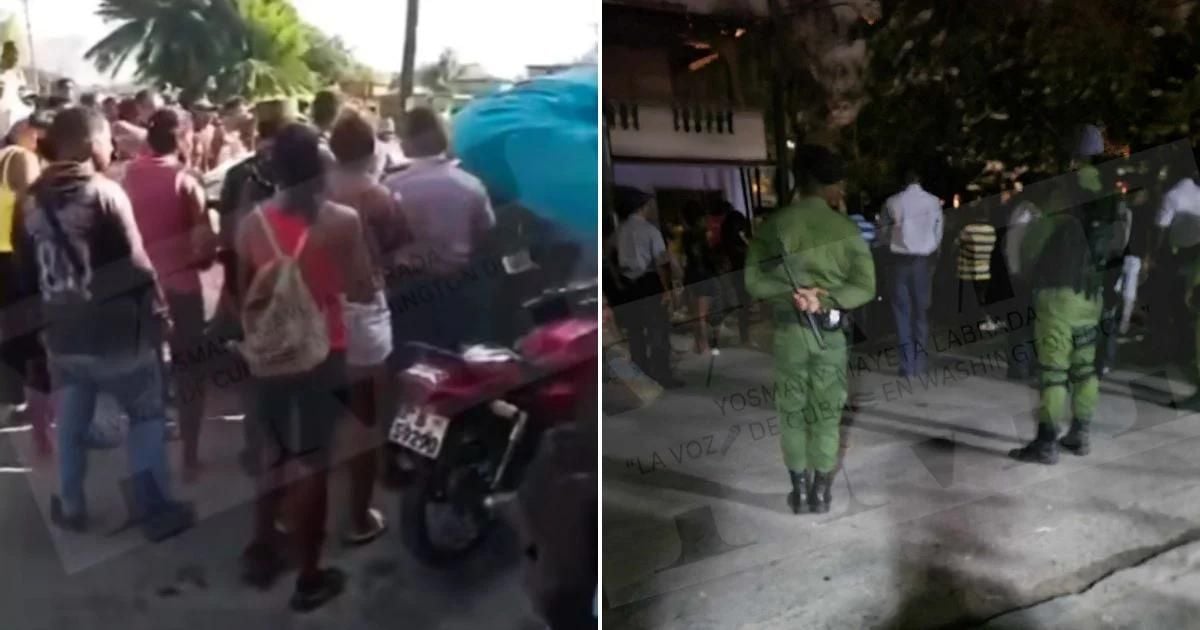The Cuban Conflict Observatory (OCC) documented 671 protests and public complaints on the island in June, highlighting the high level of social discontent and growing opposition to the communist regime. According to the latest OCC report, this figure is slightly lower than May’s total of 716, but it underscores the persistent dissatisfaction with a government that resorts to "repression to retain power, while its energy strategy continues to fail and its neglect of housing construction and environmental sanitation leads to collapses and floods."
Undoubtedly, economic inflation compounded by a persistent fuel crisis, food shortages, and a lack of medical supplies, among other issues, is fueling unrest in a country that increasingly resembles a pressure cooker on the brink of explosion.
The report also notes that the protests and complaints were met with the arrest of dozens of participants in conga lines and pot-banging protests; sentences of five to seven years in prison for five activists who took to the streets with posters and posted a video on social media; harassment of religious figures, private business owners, artists, philanthropists, and other civil society actors.
Arbitrary detentions, abuses, and prosecutions against opposition members and independent journalists were swift, while complaints about public services surged, mostly due to continuous blackouts, water service issues, and neglect of urban sanitation.
"Citizen insecurity accounted for 102 expressions of discontent in June. In a meeting with young Americans, Díaz-Canel assured that there are no disappearances or murders in Cuba, but just in the sixth month of the year, the OCC recorded 21 reports of missing persons and 27 of murders or homicides," the report states.
Another set of protests was related to public health and the spreading of Oropouche fever from east to west, while food continues to be a concern for island residents due to both scarcity and high prices.
"For the first time, the United Nations Children's Fund (UNICEF) included Cuban children among those suffering severe food poverty," the report noted, also pointing to a rise in begging, child labor, building collapses due to heavy rains, and the poor state of housing.
According to the OCC, the spontaneous protests and complaints represent a 38.3 percent increase over the 414 protests recorded in the same month in 2023, spanning all 15 provinces of the country as well as the special municipality of Isla de la Juventud.
Just a couple of days ago, residents of Reina Street in the Centro Habana municipality blocked traffic to protest the lack of water and the government's poor management in addressing the issue. “The protesters demanded water supply, even if it had to be delivered by tanker trucks,” reported Cubanet.
Something similar happened in Old Havana, where dozens of Cubans gathered at the intersection of Egido and Acosta streets to protest the scarcity of water, as the government had not provided any solution, according to a video also shared by the independent media outlet.
Three weeks ago, after more than two months without potable water, residents of the Ecoa 13 village on the road to Camajuaní in Santa Clara blocked the avenue in protest against the authorities' negligence and demanded the restoration of the service. The protesters confirmed that they had been without water for over two months, prompting them to take to the streets and block traffic while chanting "we want water."
Understanding the Current Wave of Protests in Cuba
In light of the recent surge in protests and public complaints in Cuba, here are some frequently asked questions that provide further insights into the situation.
What are the main reasons behind the protests in Cuba?
The primary reasons include economic inflation, a persistent fuel crisis, food and medical supply shortages, and general dissatisfaction with the government's handling of public services and infrastructure.
How has the Cuban government responded to the protests?
The government has responded with repression, including the arrest of protesters, harassment of civil society actors, and arbitrary detentions of opposition members and independent journalists.
What public services are most affected by the current crisis in Cuba?
The most affected public services include the electrical grid, water supply, urban sanitation, and public health services.
What impact has the crisis had on Cuban children?
For the first time, UNICEF has included Cuban children among those suffering from severe food poverty, highlighting the extent of the crisis's impact on younger populations.
